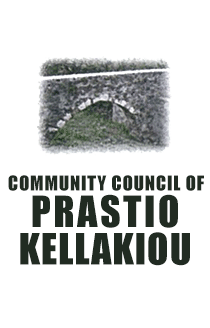Below we will describe some of the customs of Prasteio Kellakiou. Some of these customs no longer exist.
Christmas
Some days before Christmas, all the women of the village start preparing for the big feast.
The preparations include cleaning of the house, dusting, cleaning of the furniture, cooking of rusks in the traditional mud ovens, painting of the houses and of the external walls and fencing.
On Christmas days, people goes to church. After the service they receive communion (“paskazei” in the Cypriot dialect) and then they exchange wishes and kisses.
Thereafter, they return to their homes and the entire family sits on the table for the traditional soup “avgolemoni” (made of eggs, lemons and rice) or trachana (traditional soup made of coarse wheat), in a pleasant environment.
Some days before Christmas the inhabitants of the village killed their pigs in order to eat them or make lountza (traditional smoked ham), sausage and minced meat. With their tummy they made dry-slated meat and with their feet and head they produced “zalatina” (a kind of brawn). The sausages were dipped in wine and then they were exposed to sun. The other parts of the pig were semi cooked and kept in “koumnia” (clay pots) with all their fat, which melted after cooking. This way the inhabitants had supplies for a very long time.
New year’s day
ON New Year’s Eve, the housewives prepare the “vasilopita” (traditional pie) and put a coin in it. The pie is cut in the afternoon of New Year’s Day. The person who finds the coin is considered the luckiest person of the year.
On New Year’s Day people go to church in order to attend to the service and when it is finished they exchange kisses and wishes.
Epiphany
On the day of the epiphany, all the housewives made “loukoumades” (fried honey puffs) and ate them with their families. One old tradition said that “kalintzaroi” (goblins) came to the village and roamed at night scaring the people. So, women threw some “loukoumades” on the roofs of their houses believing that “kalikatzaroi” would eat them and leave the village quietly.
After the service, the priest of the village accompanied by a child went to all the houses and hallowed (sprinkled with holy water). |
